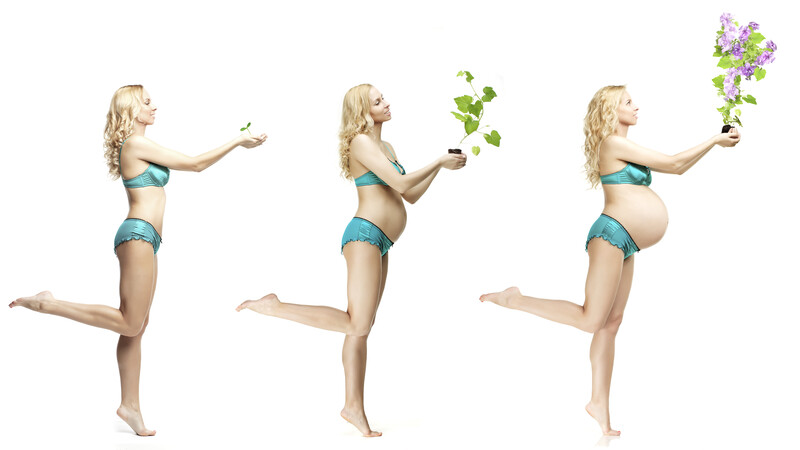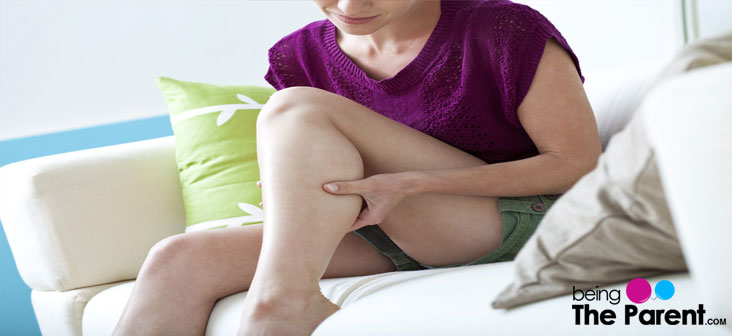
Missed your period! Feeling worried now? Well, try a home pregnancy test, as missing your period is the first sign of pregnancy. This may be followed by mild cramping abdominal pain and light bleeding as the egg implants itself in your uterus. Now, if you are inclined towards believing that these are the only signs of pregnancy, then you might be mistaken; why? Because there will be a series of body changes during pregnancy that occur week-by-week and trimester-by-trimester during pregnancy.
So, let us now have an in-depth understanding of all the changes our body goes through while we are planning for childbirth.
Typical body changes during pregnancy
- Morning Sickness
The first thing that every pregnant woman is seen complaining about is morning sickness. This feeling of nausea and vomiting is the early-most sign of pregnancy that begins right at the initiation of 6th week of pregnancy. It can happen at any time of the day. However, most women experience this feeling of nausea early in the morning.
Moreover, morning sickness ends by the end of the 12th week of pregnancy. Nevertheless, it is not harmful to your body but one has to get alarmed if the vomit aggravates to an excessive level.
- Mood swings
Have you ever met pregnant women who show differing moods, gets happier at times and feels a sense of deep sadness and irritation at other. As they say, ‘pregnant and wild, cold as ice and hot as fire all at one time’.
These mood swings during pregnancy can be caused by physical stress, hormonal upheaval, and metabolism changes etc. Moreover significant changes in estrogen and progesterone can affect your neurotransmitters, present in brain that is responsible for the regulation of mood.
Moreover, these mood swings are experienced during the first trimester and then again in the third trimester as the body prepares itself to give birth.
- Fluid retention
During pregnancy, body prepares over 50% more bodily fluids to support the formation of the baby inside the womb. And this may lead to normal body swelling as it is caused by body fluids and additional blood in the body. This swelling may be experienced in hands, legs, feet and ankles.

Furthermore, this extra fluid retention is also required to soften the body so that the body can stretch smoothly as the baby expands. And this extra fluid also helps the pelvic joints and tissues to open at the time of delivery.
- Weight gain
Another important bodily change that occurs during pregnancy is weight gain. Though women need not ‘eat for two’ but a healthy intake of around 300calories extra is considered sufficient to support the developing baby.
The women’s body weight keeps increasing till the end of the pregnancy. And 25% of total weight is constituted by the bodily fluids and additional blood.
- Hyperactive bladder
During pregnancy, some women face a urinary incontinence, involuntary loss of urine. This incontinence occurs when the expanding uterus puts pressure on the bladder. Therefore, women have a need to urinate more than normal because their bladders get uncontrollable spasms.
- Sore breasts
During early days of pregnancy, a woman’s breasts might feel soft, tender and sore on touching. Apart from that, they may also feel heavier and fuller at times. This swelling and heaviness usually occur during the early days of pregnancy and may last little longer as the bodily progesterone level rises.
However, in some cases the breasts become so tender that even the fabric brushing against them might inhibit pain and even the mildest touch might instill unbearable pain. But this period would pass after the first trimester.
Apart from sore and tender breasts, one would also experience a dramatic increase in size of the breast. They may increase some cup sizes or may increase altogether once the baby arrive. However these soreness and increase in size may all fade away ones the baby grows up.

